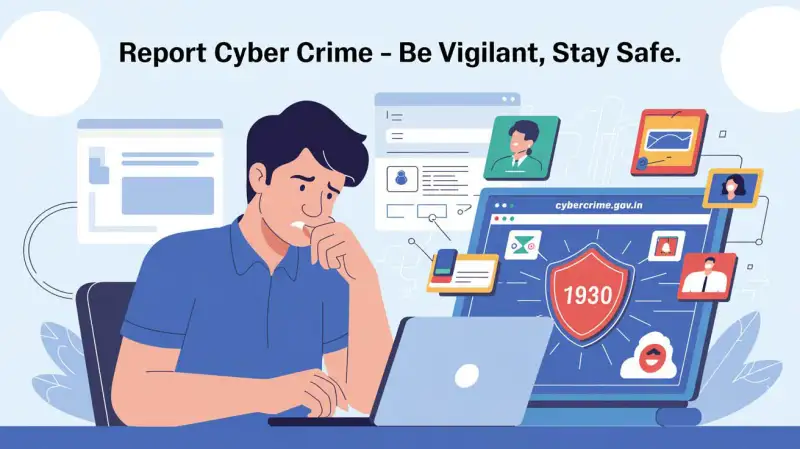IMEI Tracking Software Used by Police: Balancing Crime Prevention and Privacy - Digiforum Space
Share
Facebook X LinkedIn Tumblr Pinterest Pocket Skype Messenger Messenger ViberIMEI Tracking Software Used by Police: In an increasingly connected world, mobile devices have become an integral part of our lives. Smartphones, in particular, store a treasure trove of personal information, making them valuable tools for both lawful citizens and criminals alike. Law enforcement agencies worldwide have adopted various technologies to combat mobile device-related crimes, and one of the most significant tools in their arsenal is IMEI tracking software.
IMEI (International Mobile Equipment Identity) is a unique identifier assigned to every mobile device. When a mobile device is reported stolen or involved in illegal activities, law enforcement agencies can use IMEI tracking software to locate and recover these devices. However, this technology raises important questions about privacy, surveillance, and the balance between crime prevention and civil liberties.
In this article, we will explore the fascinating world of IMEI tracking software used by police. We’ll delve into its capabilities, the legal and ethical considerations surrounding its use, and its impact on society.
The Basics of IMEI Tracking
Understanding IMEI Numbers:IMEI stands for International Mobile Equipment Identity. It is a 15-digit unique identifier assigned to every mobile device, including smartphones and tablets. IMEI numbers are used to track and authenticate devices on mobile networks.
IMEI as a Tracking Tool:IMEI tracking software utilizes these unique identifiers to track and locate mobile devices. Law enforcement agencies can request data from mobile service providers to identify the real-time or historical locations of specific devices.
How IMEI Tracking Works:IMEI tracking relies on a device’s connection to cellular networks. When a device connects to a network, its IMEI number is transmitted to the network’s towers, allowing service providers to track its location.
Use Cases for IMEI Tracking
Stolen Device Recovery:One of the primary purposes of IMEI tracking is the recovery of stolen mobile devices. When a device is reported stolen, law enforcement agencies can use IMEI tracking to locate and retrieve it.
Counteracting Mobile Device Crimes:IMEI tracking is essential in combating various mobile device-related crimes, such as theft, fraud, and drug trafficking, where criminals often use mobile devices to communicate and coordinate illegal activities.
Missing Persons Cases:In missing persons cases, especially those involving children or vulnerable individuals, IMEI tracking can be a crucial tool in locating and rescuing those in danger.
Counterterrorism and National Security:Law enforcement and intelligence agencies use IMEI tracking to investigate potential threats to national security, including tracking the movements and communications of suspected terrorists.
The Legal and Ethical Landscape
Legal Framework:IMEI tracking is subject to legal regulations and guidelines in most countries. Laws vary, but they typically require law enforcement agencies to obtain warrants or court orders before accessing IMEI tracking data.
Balancing Privacy and Security:IMEI tracking raises significant privacy concerns. Balancing the need for public safety with individuals’ right to privacy is an ongoing challenge for lawmakers and policymakers.
Controversial Cases:Several high-profile cases have brought IMEI tracking into the spotlight. These cases often involve debates about the legality and ethical implications of using this technology.
IMEI Tracking Software and Tools
Commercial IMEI Tracking Software:Law enforcement agencies can access commercial IMEI tracking software and tools that provide real-time and historical location data, call records, and text messages associated with specific devices.
Collaboration with Mobile Service Providers:Mobile service providers play a crucial role in IMEI tracking. They cooperate with law enforcement agencies to provide access to their networks and data.
International Cooperation:IMEI tracking often requires international cooperation when tracking devices that have crossed borders. Interpol and other international organizations assist in such cases.
The Ethical Debate
Surveillance vs. Privacy:The use of IMEI tracking software raises fundamental questions about surveillance and privacy. Critics argue that it can lead to unwarranted surveillance and abuse of power.
Transparency and Accountability:Maintaining transparency and accountability in the use of IMEI tracking software is vital. Policymakers and civil liberties advocates call for clear regulations and oversight mechanisms.
Data Security:Protecting the data collected through IMEI tracking is paramount. Ensuring that this sensitive information remains secure is a significant challenge.
Case Studies
The Apple-FBI Encryption Dispute:The 2016 case involving the iPhone used by one of the San Bernardino shooters sparked a heated debate about privacy, encryption, and law enforcement access to devices.
IMEI Tracking in Counterterrorism:Examining how IMEI tracking has been instrumental in tracking and apprehending individuals involved in terrorist activities.
The Use of IMEI Tracking in Missing Persons Cases:Heart-wrenching stories of families finding closure and reuniting with missing loved ones through IMEI tracking.
Future Developments and Concerns
Technological Advancements:As technology continues to evolve, so will IMEI tracking capabilities. This raises questions about how these advancements will impact privacy and security.
Global Regulation:The need for standardized global regulations on IMEI tracking to ensure ethical and legal use of this technology.
Public Awareness and Education:The importance of educating the public about IMEI tracking, its benefits, and its potential risks.
Related Articles
- IMEI Tracker online for lost mobile in India
- Lost Phone? Find It Fast with Police IMEI Tracker System
- Ecom Express courier tracking number
- Paynearby logo download
- Police verification certificate online
Conclusion
IMEI tracking software used by police is a powerful tool in the fight against mobile device-related crimes and in various law enforcement efforts. However, its use is not without controversy, as it raises concerns about privacy, surveillance, and the balance between security and civil liberties.
As technology continues to advance, policymakers, law enforcement agencies, and civil society must work together to establish clear regulations, ensure transparency and accountability, and protect individuals’ rights while leveraging the benefits of IMEI tracking for the greater good of society. Balancing these factors is essential to navigating the evolving landscape of IMEI tracking in a responsible and ethical manner.
FAQs – Frequently Asked Questions
What is IMEI tracking software used by police?
IMEI tracking software is a tool used by law enforcement agencies to track and locate mobile devices using their unique IMEI numbers.
What is the primary purpose of IMEI tracking?
The primary purpose of IMEI tracking is to recover stolen mobile devices, combat mobile device-related crimes, locate missing persons, and address national security concerns.
How does IMEI tracking work?
IMEI tracking relies on mobile devices’ connections to cellular networks. When a device connects, its IMEI number is transmitted to network towers, allowing service providers to track its location.
What legal regulations govern IMEI tracking?
IMEI tracking is subject to legal regulations in most countries. These laws typically require law enforcement agencies to obtain warrants or court orders before accessing IMEI tracking data.
What ethical concerns are associated with IMEI tracking?
IMEI tracking raises ethical concerns related to privacy, surveillance, transparency, and data security.
Can IMEI tracking be used in counterterrorism efforts?
Yes, IMEI tracking has been instrumental in tracking and apprehending individuals involved in terrorist activities.
Are there any high-profile cases related to IMEI tracking?
Yes, the Apple-FBI encryption dispute in 2016 is one such case that sparked a debate about privacy, encryption, and law enforcement access to devices.
What role do mobile service providers play in IMEI tracking?
Mobile service providers cooperate with law enforcement agencies by providing access to their networks and data, facilitating IMEI tracking.
How is IMEI tracking used in missing persons cases?
IMEI tracking can help locate and rescue missing individuals, especially in cases involving children or vulnerable individuals.
What does the future hold for IMEI tracking software?
The future of IMEI tracking includes technological advancements, the need for global regulation, and public awareness and education initiatives to strike a balance between security and civil liberties
Copy URL URL Copied
Send an email 10/10/20230 111 4 minutes read
Share
Facebook X LinkedIn Tumblr Pinterest Pocket Skype Messenger Messenger ViberShare
Facebook X LinkedIn Tumblr Pinterest Reddit VKontakte Odnoklassniki Pocket Skype Share via Email Print





